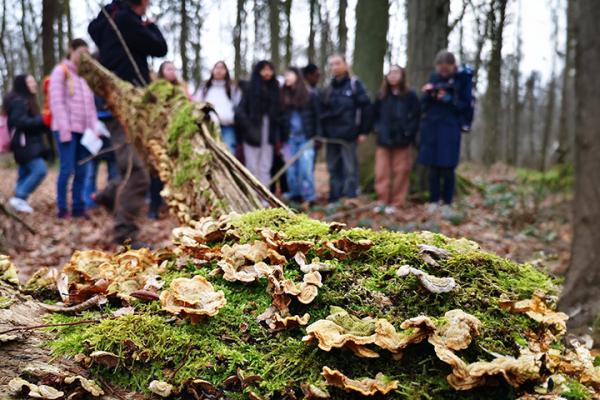How to become a Nobel Prize winner
Professor Englert, could you have won the Nobel Prize in physics for the theoretical mechanism that you formulated 50 years ago without the discovery of the new boson at CERN?
‘In my field of research, you cannot validate a theory without the gigantic tools that probe matter available at CERN. As theorists, we can imagine complex mechanisms that attempt to describe the universe. But without the help of our fellow experimenters who validate these theories from time to time, they remain only theories. Moreover, theorists are in some kind of a mist for the time being. They lack a kind of imagination regarding new theories. They do not really know in what direction they should go, or how they should direct their research. We therefore expect signs, or information coming from the experiments of our colleagues for hints, to help us decide in which direction we should try to develop new models that explain better the world in which we live.’
Is it time to think about the future of the Large Hadron Collider (LHC), the big particle accelerator at CERN?
“‘The LHC still has a few years of work ahead of it. It will soon operate at higher energies. It could potentially give us new hints, and detect new particles that will help us forge new theories in physics. We must of course also start thinking about the future. But first, we need to push further the capacity of the LHC, and analyse what will come out of it before deciding what kind of new tools we might need in the future to address the new issues that will arise in physics.’‘Most of my original research did not result from deductive thinking. It arose when I let my mind wander freely while lying on this mattress.’
Why did you invent the ‘boson’ 50 years ago?
‘I did not invent the boson. At that time, in the early 1960’s, with my now deceased friend and colleague Robert Brout, at the Université Libre de Bruxelles, we wanted to find a solution to a physical problem. We designed an elegant solution to try to solve that problem. This theory involved a specific field in the universe that interacts with matter and which, itself, implied the existence of a new particle – the boson we are speaking about. So talking about the “invention of the boson” is not the best shorthand you can think of.’
Is it really important to have public money supporting basic research?
‘This is obvious. Without basic research, applied research would quickly suffer from a lack of new ideas. Applied research would suffocate. It would eventually copy already existing inventions without creating anything new. Without basic research, we would not have electricity, for example. When I am asked about the usefulness of basic research, I like to take CERN as an example. It is at CERN that the web was invented to enable data exchange between scientists. This clearly shows us what kind of positive and totally new things basic research can generate. Of course, I also perfectly understand that people have to live and eat, and that governments, in crisis situations, may need to take emergency measures. However, beware of cutting investment in basic research. It is vital to our societies.’
What is your recipe for becoming a Nobel laureate?
‘I do not know. But I can tell you how things worked for me, although I never thought of becoming a Nobel laureate during my career. At school I was a pretty good student. But there were courses that I did not like, such as geography. Not so much because of geography as such, but because of the teacher. On the other hand, I had the chance to have a marvellous mathematics teacher. It is thanks to him that I started studying engineering and then went on to do a PhD in physics. This brings us to the question of pedagogy and of “how to make a scientist”. I think we should encourage inductive thinking (where facts are used to supply strong evidence for often experimental ideas) rather than teaching deductive thinking (which focuses on the logical conclusion of the available information) to our students and young researchers. This is difficult in a mass educational system. It is easier in a lab, where we can help a student to learn this inductive approach and to show him or her how valuable scientific research can be done. Teaching somebody how to become a researcher should be more a kind of apprenticeship than just the diffusion of methods and knowledge. We should not overlook the role of unconsciousness in this process. We could name this “creative inspiration”. It is very close to artistic creation. I play piano. Classical music has a rather extraordinary logical structure that you cannot teach by simple methods. Scientific research works in very much the same way.’
Speaking about working methods, you developed a rather specific one at university, right?
‘Maybe. When I was a physics professor at the Université Libre de Bruxelles, I bought a second-hand mattress at the flea market and put it in my office. It was indeed quite unusual … It allowed me to spend nights and nights working without going back home. Most of my original research did not result from deductive thinking. It arose when I let my mind wander freely while lying on this mattress. If you think deductively, you only discover what you suspected at the beginning of the process. With the other method, you unleash your unconscious brain and in the end, it comes up with totally new ideas.’
What has been the impact of winning a Nobel Prize?
‘I am very happy! But at the same time, it has radically changed my life. You cannot imagine how many requests I have received since the announcement of the prize. It currently prevents me from pursuing my research. I am therefore very happy not to have received it when I was 50 years old. It would have posed a real problem for my research.’




